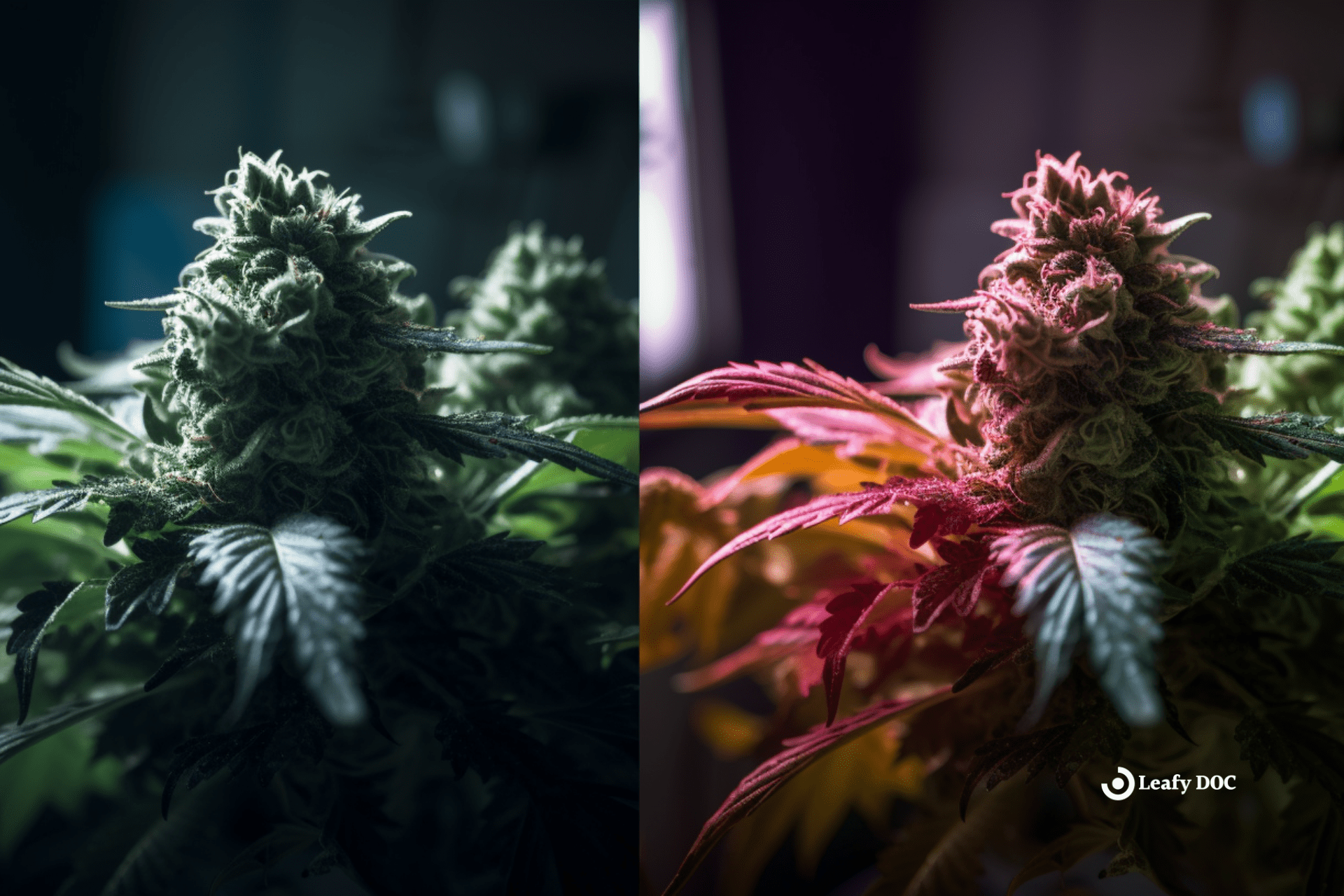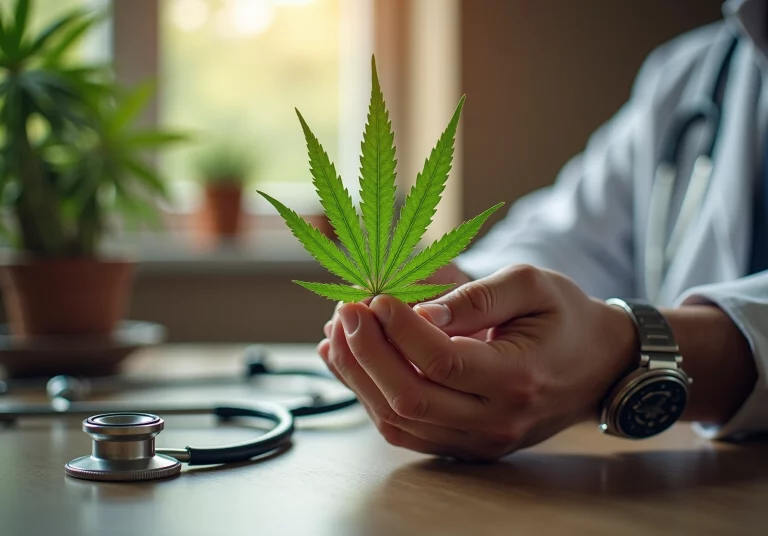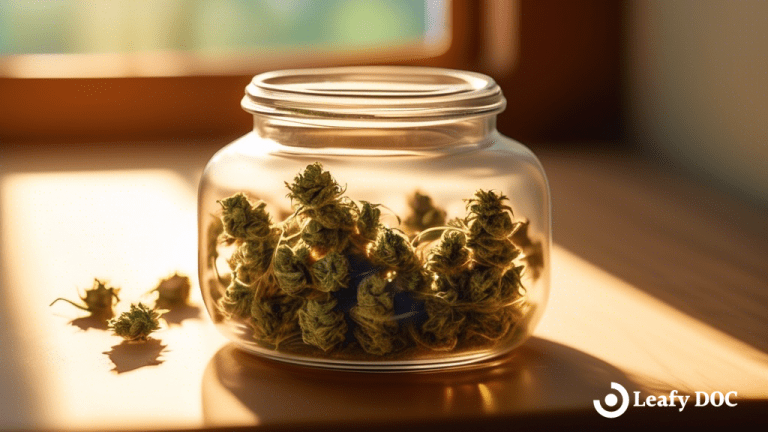Comparing and Contrasting: HHC vs THC
by Haley Mills · September 27, 2023
Unlock the Secrets of HHC vs THC: Discover the Key Differences and Enhance Your Knowledge Today! Don’t miss out on this enlightening comparison – click here now!

When it comes to cannabis, many terms and abbreviations are thrown around, such as hhc and THC. These two compounds are often discussed in relation to their effects, legality, and potential medical applications.
Understanding the differences between hhc and THC is essential for anyone interested in the world of cannabis. HHC, short for hexahydrocannabinol, is a lesser-known compound found in cannabis. While THC, or tetrahydrocannabinol, is the most well-known and widely studied compound in cannabis, hhc is gaining attention for its potential therapeutic properties.
Both compounds are cannabinoids, meaning they interact with the body’s endocannabinoid system but have different chemical compositions and effects. Exploring the distinctions between hhc and THC can provide valuable insights into the various aspects of cannabis use and its potential benefits.
What is hhc?
So, you may be wondering, what exactly is hhc?
HHc stands for hexahydrocannabinol, which is a synthetic cannabinoid compound. It is similar to THC but with some distinct differences.
HHc is known for its psychoactive effects, just like THC, but it is considered more potent. It is often used as a recreational drug and commonly found in products such as edibles, vape cartridges, and tinctures.
One of the main differences between hhc and THC is their chemical structure. Hhc has a slightly different arrangement of atoms than THC, giving it its unique properties.
Another difference is the way they affect the body. Hhc is believed to have a stronger binding affinity to the cannabinoid receptors in the brain, resulting in a more intense high. Additionally, hhc is reported to have a longer-lasting effect compared to THC.
Despite their similarities, hhc and THC also have some similar effects. Both compounds can induce feelings of relaxation, euphoria, and increased appetite. They can also have therapeutic benefits, such as pain relief and stress reduction.
However, the use of hhc is not as well-studied as THC, and its long-term effects are still largely unknown. Hhc is a synthetic cannabinoid compound that is similar to THC but with some distinct differences. It is known for its potent psychoactive effects and is often used as a recreational drug.
What is THC?
To truly understand the effects of THC, imagine the powerful and intoxicating sensations it can evoke within you. THC, or tetrahydrocannabinol, is the main psychoactive component found in cannabis. It is responsible for the “high” or euphoric feeling that users experience when consuming marijuana.
When THC enters the body, it binds to cannabinoid receptors in the brain and central nervous system, causing a range of effects such as relaxation, altered perception of time and space, increased appetite, and a sense of euphoria.
The intensity of these effects can vary depending on the concentration of THC in the cannabis product and the method of consumption. Smoking or vaporizing marijuana allows for rapid absorption of THC into the bloodstream, leading to a quicker onset of effects. Conversely, edibles take longer to take effect as the THC is metabolized in the liver before entering the bloodstream.
The effects of THC can last anywhere from a few hours to several days, depending on the dose and individual factors such as metabolism.
While THC can provide a pleasurable experience for many, it can also have harmful side effects. Some users may experience anxiety, paranoia, or even hallucinations when consuming high doses of THC. Additionally, long-term heavy use of THC has been associated with cognitive impairments and an increased risk of developing mental health disorders, particularly in individuals predisposed to these conditions.
THC is a potent psychoactive compound with both positive and adverse effects. Its intoxicating properties make it a popular recreational substance, but it should be used with caution and moderation to minimize the risk of adverse reactions.
Chemical Composition and Effects
When it comes to the chemical composition and effects, you’ll find significant differences between hhc and thc.
THC, or delta-9-tetrahydrocannabinol, is the primary psychoactive compound found in cannabis. It is responsible for the “high” feeling that people experience when using marijuana. THC binds to the cannabinoid receptors in the brain and nervous system, producing a variety of effects such as relaxation, euphoria, increased appetite, and altered perception of time. These effects can vary depending on the strain of marijuana and the individual’s tolerance and sensitivity to THC.
On the other hand, HHC, or hexahydrocannabinol, is a lesser-known compound found in cannabis. It is structurally similar to THC but has a different chemical makeup. HHC is said to have a milder psychoactive effect compared to THC, making it a popular choice for those who want a more subtle experience. Some users report feeling a sense of calm and relaxation without the intense high associated with THC. However, more research is needed to understand the effects and potential benefits of HHC fully.
While both THC and HHC are compounds found in cannabis, they have distinct differences in their chemical composition and effects. THC is the main psychoactive compound responsible for the “high” feeling, while HHC is a milder alternative with a different chemical makeup. Understanding these differences can help individuals decide which compound is more suitable for their needs.
Legal Status and Regulations
Despite the legal status and regulations surrounding them, there are key differences between the two substances. THC, or delta-9-tetrahydrocannabinol, is the main psychoactive component in cannabis and is responsible for the “high” feeling. It is classified as a Schedule I controlled substance in the United States, meaning it’s illegal and has no accepted medical use.
However, many states have legalized THC for medical or recreational use, creating a complex and varying legal landscape.
On the other hand, HHC, or hexahydrocannabinol, is a synthetic cannabinoid that’s recently gained attention. It’s chemically similar to THC, but with slight differences in its structure. HHC isn’t specifically scheduled as a controlled substance, meaning its legal status is unclear.
Some states have explicitly banned HHC, while others haven’t addressed it specifically in their legislation. This lack of regulation has led to concerns about the safety and quality control of HHC products.
Potential Medical Applications
Potential medical applications for both hhc and thc make them intriguing options for patients seeking alternative treatments. Both compounds have shown potential in treating various medical conditions, although their mechanisms of action and effects on the body differ.
HHc, or hexahydrocannabinol, is a synthetic cannabinoid that has been studied for its potential therapeutic effects. It has been found to have anti-inflammatory properties, which could make it beneficial for conditions such as arthritis or Crohn’s disease. HHc has also shown promise in treating pain, with some studies suggesting that it may be more effective than traditional opioids. Additionally, HHc has been explored for its potential anti-anxiety and anti-depressant effects, making it a possible treatment option for mental health disorders.
On the other hand, THC, or tetrahydrocannabinol, is the psychoactive compound found in cannabis. It is well-known for its pain-relieving properties and has been used to alleviate symptoms in conditions such as multiple sclerosis and cancer. THC also stimulates appetite, making it useful for patients undergoing chemotherapy or suffering from eating disorders. Furthermore, THC has been studied for its potential anti-tumor effects, with some research suggesting that it may inhibit the growth of cancer cells.
Both hhc and thc have demonstrated potential in treating various medical conditions. While hhc is a synthetic cannabinoid with anti-inflammatory and analgesic properties, thc is the psychoactive compound found in cannabis with pain-relieving and appetite-stimulating effects. Further research is needed to fully understand these compounds’ medical applications and determine the optimal dosages and administration methods for different conditions.
Last Updated: August 8, 2024
Get Approved for Your Medical Marijuana Card in Minutes!

Get Your Medical Card
Connect with a licensed physician online in minutes

Like This Article?
Share with your friends
Table of Contents
Keep Reading
-
What Are the 15 Conditions for Medical Marijuanas in Alabama?
Discover the 15 qualifying conditions for medical marijuana in Alabama and enhance your treatment options.
-
8 Steps to Enhancing your High
Looking to enhance your highs? Learn 8 simple and effective steps to achieving a safe and enjoyable high. Get the most out of your experience with this comprehensive guide!
-
How To Make Cannabis Oil
Discover the simple steps to make your own cannabis oil at home and unlock a healthier, happier you. Follow our easy guide now and start enjoying the benefits today!



